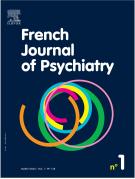Personalised 360o video exposure therapy for the treatment of obsessive-compulsive disorder: A single case study - 29/05/20
 , Margot Morgiève a, Marine Euvrard a, João Flores Alves Dos Santos b, Antoine Pelissolo c, d, Luc Mallet a, b, c
, Margot Morgiève a, Marine Euvrard a, João Flores Alves Dos Santos b, Antoine Pelissolo c, d, Luc Mallet a, b, cHighlights |
• | Personalised immersive 360̊ video exposure was well tolerated. |
• | The protocol was able to elicit fear and initiate a habituation process. |
• | Obsessive and compulsive symptomatology and quality of life improved in 3 months. |
• | This technique may represent a valuable option in the therapeutic arsenal for OCD. |
Summary |
Objective |
Between 40 and 60% of patients with obsessive-compulsive disorder (OCD) are resistant to first-line treatments, including exposure and response prevention techniques. Those are likely to benefit from the rise of virtual reality (VR). However, very few studies have been conducted on the use of VR in OCD with several limitations including a lack of ecological validity. This proof of concept study aims to assess the feasibility and therapeutic potential of a personalised exposure protocol using immersive video.
Methods |
This protocol was applied to a patient suffering from severe and resistant OCD and consisted of 15 weekly sessions of exposure via a VR headset to 360° immersive videos filmed from the subject's viewpoint in their own environment.
Results |
Besides the high acceptability of the immersive device, our patient exhibited a therapeutic response with a reduction in emotional responses measured by skin conductance recording, a reduction in obsessive-compulsive symptoms and an improvement in quality of life.
Conclusions |
This study provided promising results in a patient initially refractory to conventional treatments. Replication of these results would place personalised immersive 360o video exposure as a technique of choice in the therapeutic arsenal for OCD due to its cost-effectiveness and high acceptability.
Le texte complet de cet article est disponible en PDF.Keywords : OCD, 360o video, Exposure and response prevention, Personalised psychiatry
Plan
Vol 1
P. 31-38 - mars 2020 Retour au numéroBienvenue sur EM-consulte, la référence des professionnels de santé.
L’accès au texte intégral de cet article nécessite un abonnement.
Déjà abonné à cette revue ?

